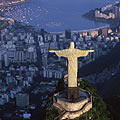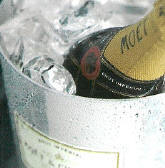 |
|
 |
 |
 |
|
|
Rio De Janeiro, Brazil |
EMAIL US |
|
|
Awaiting Your Return From Shore |
 Rio ranks as a favorite destination for visitors
from all over the world. The dark blue sea studded with rocky islands,
tumbling wooded mountains, and expanses of beaches make for a magnificent
setting. Rio ranks as a favorite destination for visitors
from all over the world. The dark blue sea studded with rocky islands,
tumbling wooded mountains, and expanses of beaches make for a magnificent
setting. Rio’s history effectively began on January 1, 1502, when Portuguese captain André Gonçalves steered his craft into Guanabara Bay, thinking he was heading into the mouth of a great river. The city takes its name from this event: Rio de Janeiro means "River of January." In 1763 the city replaced Salvador as Brazil’s capital. It remained the capital until 1960, when the country’s political administration was moved to the new federal capital of Brasilia. Rio’s cultural diversity has derived from its nearly 500-year history. By the 18th century, the majority of the city’s inhabitants were African slaves. Unlike other foreign colonies, miscegenation became the rule rather than the exception in Brazil. Virtually nothing in Rio remained untouched by African customs, beliefs, and behavior. It is this intriguing blend that creates an atmosphere exclusive to Rio and most evident in the spectacular Carnival. For some 60 years, the beach districts of Copacabana, Ipanema and Leblon have been Rio’s heart and soul, maintaining the city as the most captivating spot in South America. |
Awaiting Your Return From Shore |
|
|
|
|
|
|
||
|
|
|
|
|
Complimentary Spirits Await |
Return to Your Suite and Sail Away to The Next Adventure |
Entertainment and Dancing Await You |
|
|
|
|
|
EMAIL US |







